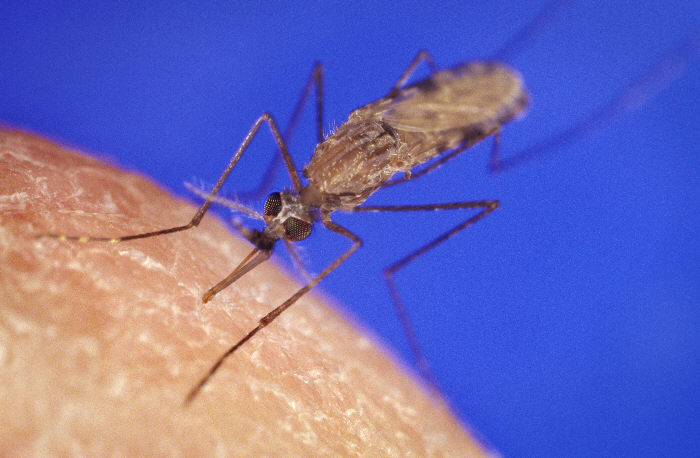Researchers this week have reported in the journal Science the existence of a new subspecies of mosquito, that is highly susceptible to the most dangerous form of malaria parasites.
Michelle Riehle and her colleagues from the Institut Pasteur in Paris and the University of Minnesota, collected larvae of Anopheles gambiae mosquitoes from pools around villages in Burkina Faso in West Africa over the course of two years.
 They found that there were two genetically distinct groups of mosquito larvae in the pools - one group whose genetic profile clustered with the profiles of indoor-living mosquitoes captured from inside people's houses, and a separate subgroup that have not ever been captured inside.
They found that there were two genetically distinct groups of mosquito larvae in the pools - one group whose genetic profile clustered with the profiles of indoor-living mosquitoes captured from inside people's houses, and a separate subgroup that have not ever been captured inside.
This second group, that the researchers described as behaviourally exophilic - basically they live outside - were then grown in the lab and fed blood infected with Plasmodium falciparum, the most deadly form of malaria to infect humans. The researchers found that 58% of the exophilic group became infected compared to 35% of the known indoor-living subspecies, although it's not clear whether this translates to being more likely to infect a person, and as yet there is no evidence that the exophilic subgroup feeds from humans.
The worrying thing here is that a lot of what we currently know about mosquito vectors in Africa has come from the study of mosquitoes captured inside houses and buildings, and much of the malaria control measures in the area concentrate on the indoor mosquitos - so strategies like spraying the insides of houses with insecticide and using mosquito nets. Combined with the discovery that this new subspecies is more susceptible to being infected with the Plasmodium falciparum parasite, it may mean strategies for dealing with malaria in West Africa need to be rethought.









Comments
Add a comment